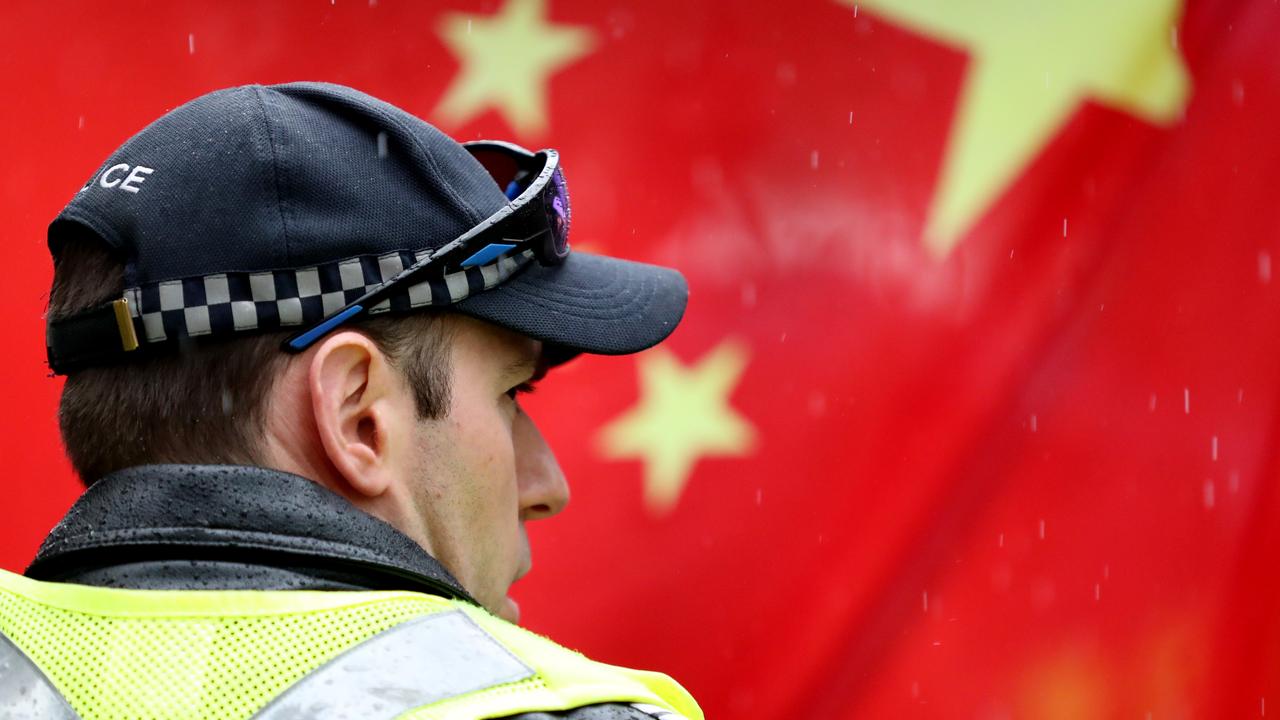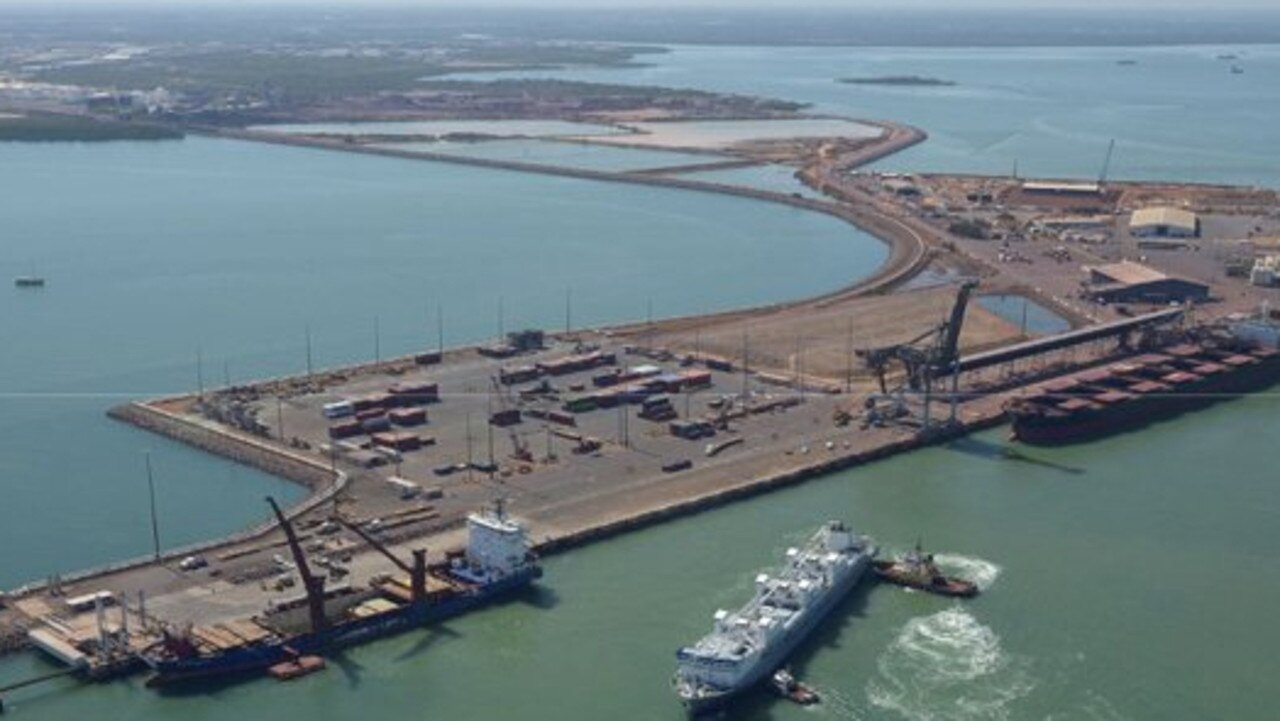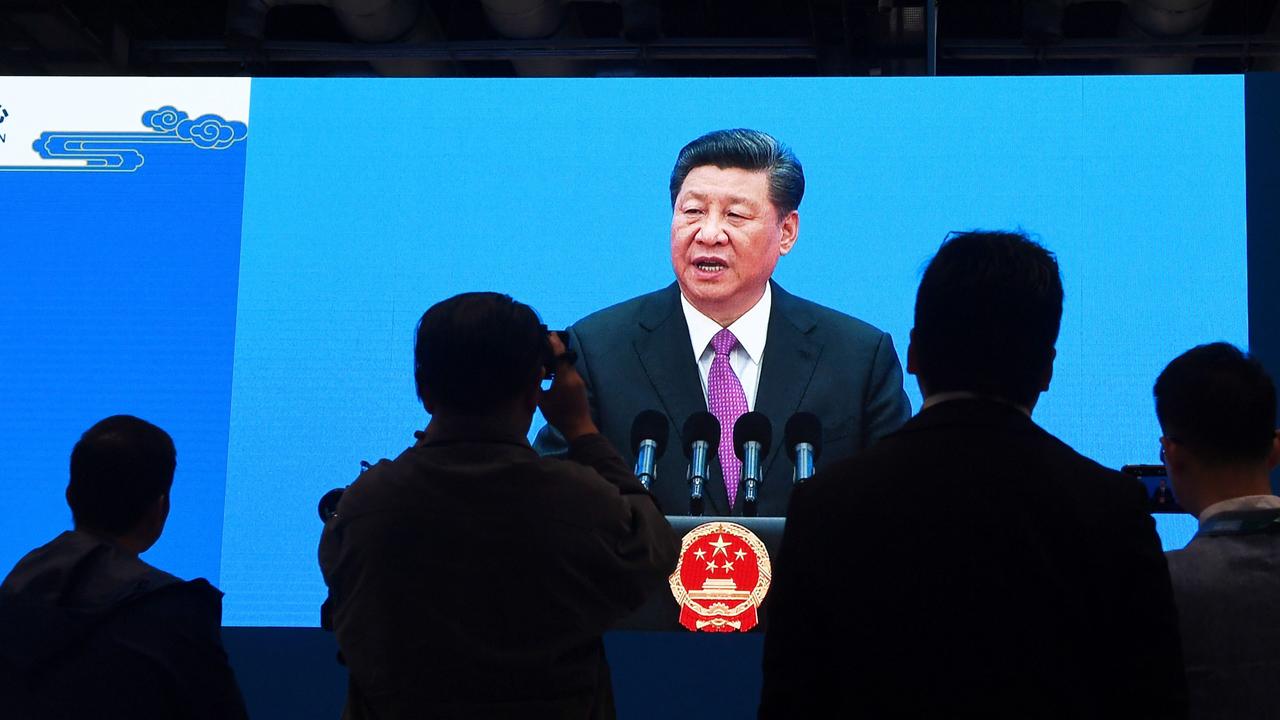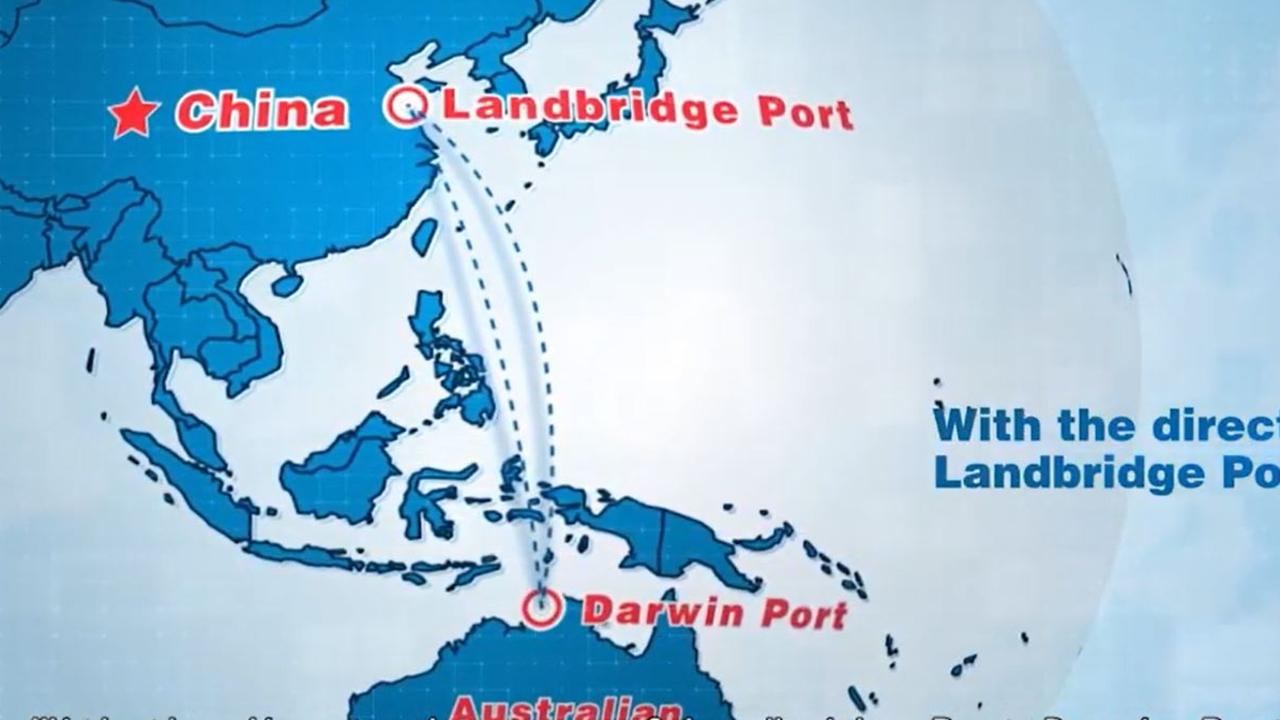China’s ‘warning shot’ to Australia over Darwin port
Beijing’s recent tearing up of a moribund agreement with Australia seemed more bark than bite. But a defence analyst says China has a bigger plan.
A defence watcher has said that China’s withdrawal from a high level agreement with Australia is a “warning shot” across Canberra’s bows that far more punitive retribution could be coming if the country doesn’t start playing ball.
Last week, Beijing ripped up the China-Australia Strategic Economic Dialogue (SED), reportedly as revenge for the Federal Government’s cancelling of Victoria’s co-operation deal with China on its flagship Belt and Road infrastructure grand plan.
Dr John Coyne, of think tank the Australia Strategic Policy Institute (ASPI), told news.com.au that the backing out of the Victoria deal is part of a growing global reticence over the Belt and Road Initiative (BRI), which has “embarrassed” China.

On Thursday, China’s state economic planner said it was halting all activities of the strategic economic dialogue (SED).
China’s National Development and Reform Commission accused the Government of “launching a series of measures to disrupt the normal exchanges and co-operation between China and Australia out of Cold War mindset and ideological discrimination”.
Those “measures” was widely interpreted as including the ending of Victoria’s BRI agreement, which happened just days beforehand.
The SED was the main bilateral government level economic forum between China and Australia with an aim to encourage investment between the two nations and smooth trade and finance talks.
However, China analysts in Australia pointed out the ending of the SED had little direct effect given it hadn’t met since 2017. Additionally, Beijing’s withdrawal didn’t change any trade agreements, although these have been disrupted in other ways.
Nonetheless, it was the first time China had taken measures against Australia during the current impasse specifically because it was displeased with the Government’s policies.
While it’s suspected the slapping of tariffs of goods such as barley and wine are due to Beijing’s anger with Canberra, it has insisted that’s not the case.
For instance, tariffs of more than 200 per cent on wine was officially because of claims Australia was dumping the product onto the Chinese market.
“It’s not good news. This is clearly a diplomatic signal, and it’s a very visible signal from China expressing displeasure over recent announcements in Australia, particularly related to the scrapping of Victoria’s Belt and Road framework,” Caitlyn Byrne of the Griffith University Asia Institute told ABC News last week on the ripping up of the SED.
RELATED: Victoria’s Belt and Road deal with China raises concerns

China’s ‘warning shot’ over Darwin port lease
Speaking to news.com.au, ASPI’s Dr Coyne said China’s wrath over the ending of Victoria’s BRI deal was a touch hypocritical on its part.
“Under no circumstance would the Chinese Communist Party allow a local government in China to make any form of formal agreement with a foreign government.
“Similarly, they would never allow any foreign company to have a long-term lease of a port of airport in China.”
Rather, he said, the move was meant to act as a deterrent.
“I suspect this was a warning shot.”
Dr Coyne said the warning shot was intended to deliver the message that far stronger retaliation could be in the works if the Government cancels Chinese firm Landbridge’s lease on the strategically important Port of Darwin.
Landbridge inked a $506 million lease in 2015 to run the port for 99 years. The company promised a huge investment in the previously chronically underfunded facility, which is northern Australia’s most important container port.
But last week, the Defence Department said it was seeking security advice on Landbridge’s custodianship of the port. Landbridge is said to have close links to the Chinese military. It lies just three kilometres from an Australian naval base.
“If there is advice from the Defence Department or our security agencies that change their view about the national security implications of any piece of critical infrastructure, we have legislation now which is dealing with critical infrastructure,” said Prime Minister Scott Morrison.
If the lease was ended, Landbridge would be entitled to generous compensation.
There is no specific BRI agreement regarding Darwin Port. But Dr Coyne pointed out that glossy videos produced by Landbridge highlighted the role Darwin could play in the BRI — also known as One Belt, One Road — a flagship project of Chinese leader Xi Jinping.
The BRI includes Chinese funded or built ports, airports, roads and railways that carry goods — and potentially influence — from China to the world.
Darwin Port, one Landbridge video said, was now a crucial part of an “important maritime co-operation pivot for the One Belt and One Road to contribute to China a more powerful port strength”.
RELATED: Australian port at centre of Beijing furore

Belt and Road axing an ‘embarrassment’ to China
Dr Coyne said China’s worry was that moves by Australia to axe domestic projects connected to the BRI would not go unnoticed by other countries.
“It’s part of a similar pattern globally of a reversal of the BRI and it’s an embarrassment to China.
“It would be highly sensitive to China if it seemed the Belt and Road was going backwards.”
A number of countries including Malaysia Pakistan, Sierra Leone and Kyrgyzstan have cancelled completely or reduced the size of BRI projects. Malaysia saved A$5 billion off an originally A$20bn China-backed new rail line.
“Some researchers are suggesting that we may have already seen ‘peak’ Belt and Road,” wrote commentator Wade Shepherd in Forbes magazine.
“Tales of corruption along the BRI have become common, the debt-trap diplomacy theory has put populations across Eurasia on guard, and the fact that dozens of major China-driven development projects across Asia have become white elephants have rendered the BRI an unattractive proposition in many markets.”
Chinese media have mentioned the Port of Darwin in editorials and warned darkly that Beijing will “not sit idly by”.
“If Australia breaks its word again, it would be tantamount to rubbing more salt on the open wounds of bilateral ties,” said an editorial in Government publication the China Daily last week.
“For Australian politicians obsessed with Cold War mentality, they should know China will not sit idle while they jeopardise China’s interests.”

Communist mouthpiece the Global Times said Landbridge provided much needed funds to upgrade Darwin’s port but pondered whether it would be the next deal to be scrapped.
“The lease did not change, but the international environment has.”
It posited that the US was keen to get its hands on the port as part of a move to potentially take the Straits of Malacca, near Singapore, through which much of China’s trade with the world passes.
“The already icy political ties between Beijing and Canberra will take another dive, the pace of economic decoupling between the two countries will accelerate, their strategic mutual trust will totally wither, and the possibility of strategic misjudgment will be greatly increased,” the paper said of any scrapping of the lease.
Beijing’s axing of the China-Australia SED may be of little consequence. But it could have more exacting punishment up its sleeve if Canberra takes Darwin’s port off its hands.




